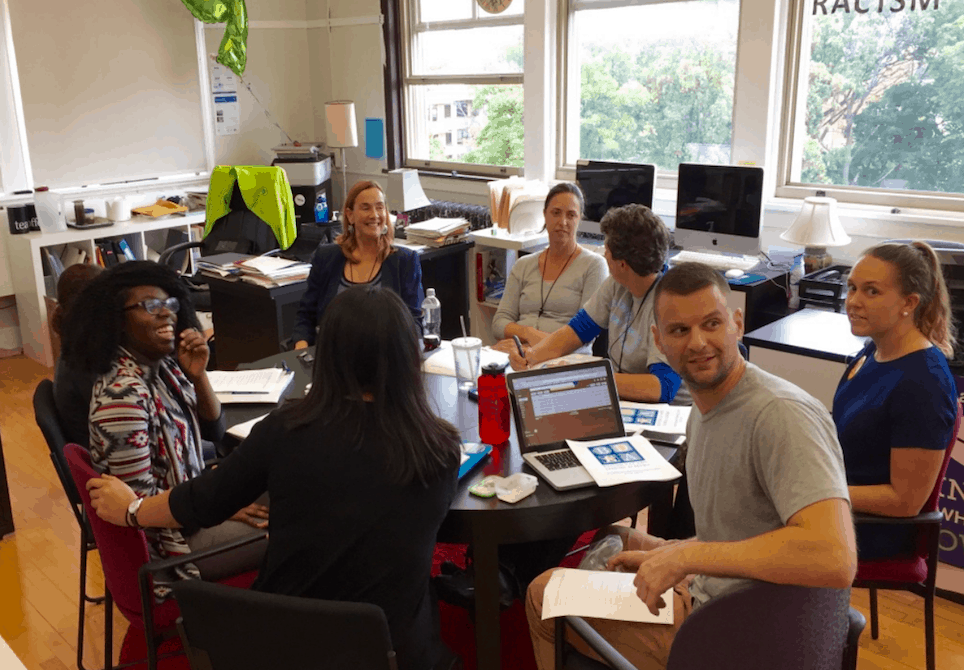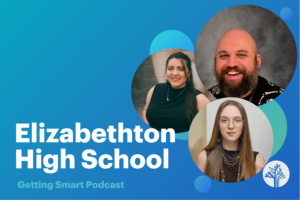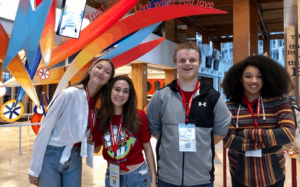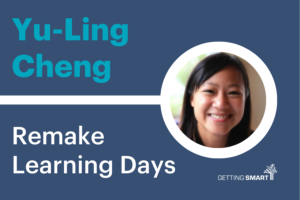Personalized Learning in Boston For Youth That Need it Most

Boston Day and Evening Academy (BDEA) is an alternative public charter high school that serves over-aged and under-credited youth. Just south of downtown in Roxbury, BDEA serves about 400 students just two blocks from the district office.
BDEA is a student-centered, competency based school that doesn’t rely on grades or grade levels to communicate progress. Proficiency-based pathways allow students to progress based on demonstrated mastery rather than seat time.
As noted in a Carnegie report, graduation from BDEA can occur in September, December, March, or June depending on when students demonstrate 317 required competencies (72 in science, 107 in math, 119 in the humanities, and 19 in technology) and complete an interdisciplinary capstone project.
All BDEA students live in or near poverty and about 10 percent are parents. Launched with two shifts to accommodate different obligations, BDEA is moving toward even greater flexibility by allowing students to attend classes or work online anytime between 9:00 a.m. and 6:00 p.m.
Students benefit from wraparound services, digital tools that help create a personalized approach, and a school open 12 hours a day. This is truly self-paced alt ed meets adventure-based leadership training meets blended learning. Carnegie lauded the round-the-clock course offerings, ample remediation opportunities, intensive post-secondary advising, and counseling for its homeless and other high-risk students.
Nicholas Donohue, CEO of the Nellie Mae Education Foundation, recommends visiting BDEA and points to the “flexible use of time and self-pacing—supported by the use of digital tools to create a personalized approach to help all learners succeed.”
The BDEA experience begins with an intensive orientation including post-secondary planning. In groups of about 18, students spend time every day with an advisor. The day I visited, staff members that serve as advisors were learning how they could improve their post-secondary advice (as pictured in feature image).
Each year classes stop for two weeks for students and teachers to engage in experiential work. Competency guru Chris Sturgis said, “Symposium is fun and meaningful for teachers and students because it dedicates time to learn competencies in an extremely creative and collaborative environment.”

Math and science teachers I met were planning an integrated Symposium unit, a sign of the creative, collaborative, and teacher-empowering culture at BDEA.
Students progress in skill cohorts. The BDEA team tracks a lot of data in a Salesforce CRM but most of the curriculum is hand crafted by teachers. BDEA teachers and students have pretty good access to devices but the focus is on relationship-enhanced learning rather than technology-enhanced learning.
Over the last 18 years BDEA has developed processes, materials, and infrastructure for supporting proficiency-based pathways. They share tools and lessons in a summer institute.
Personalized Learning in Boston
Boston Public Schools was the best urban district in the country when superintendent Tom Payzant crossed the Charles River to join the Harvard faculty a decade ago. Despite becoming an EdTech hotspot in the last few years, innovation was not a priority after Payzant’s departure. That’s starting to change.
Tommy Chang was appointed superintendent in Boston a year and a half ago. The former charter school principal and deputy in LA has recruited a talented team including Sujata Bhatt, founder of the innovative Incubator School in LA.
“It is the role of school system leaders to foster innovation and create environments where teaching and learning can truly be transformed,” announces the BPS website. “To create such an environment, there must be genuine empathy and authentic collaboration where relationships can be formed and best practices can be shared.”
The district is moving toward 1:1 access using Chromebooks as a primary access device. The leadership team is considering ways to expand access to personalize learning building on a few local successes like Tech Boston and BDEA.
For more see:








Jon Bergmann
Sounds like a great school. I love the fact that it uses competency education which when done well is deeply personalized. And I'm a huge fan of the Nellie Mae foundation.
Keep up the great work.